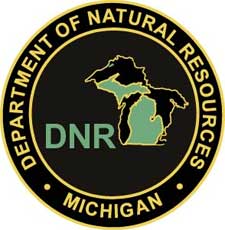

Lansing, MI -(AmmoLand.com)- As the weather warms up each spring, the Michigan Department of Natural Resources receives many calls about bear sightings and bears damaging bird feeders, trash cans and grills.
“Bears are hungry,” said DNR bear specialist Kevin Swanson. “They are looking for food after spending months in their dens. We might not think of bird feeders and trash cans as food sources, but a hungry bear certainly may.”
Birdseed is especially attractive to bears because of its high fat content and easy accessibility. Once bird feeders are discovered, bears will keep coming back until the seed is gone or the feeders have been removed.
“The majority of complaints we receive about bears in the spring involve a food source. The easiest thing people can do to avoid problems is to take down and remove their bird feeders and store other attractants like trash cans inside until garbage pickup,” Swanson said.
“Once the woods green up, bears will tend to move on to find more natural sources of food as long as they haven’t become habituated to birdseed or garbage cans.”
Bears that receive a reward of food each time they visit a yard will remember these food sources. This can create an unsafe situation for the bear and become a nuisance for homeowners if a bear continuously visits their yards during the day and repeatedly destroys private property in search of food.
“We ask homeowners to do their part to reduce conflicts by eliminating the food sources in their yards,” said Swanson. “Given time and no food reward, a bear will move along on its own.”
Anyone who is experiencing problems with bears and has removed food sources for two to three weeks, but has not seen results, should contact the nearest DNR office and speak with a wildlife biologist or technician for further assistance. Please be aware that some forms of assistance, such as trapping and relocating the bear, will not be provided unless the non-natural food sources, like bird feeders, have been removed.
“For your own safety, never intentionally feed or try to tame bears – for both your best interest and the bear’s,” Swanson said. “It is critical that bears retain their natural fear of humans.”
Learn more about Michigan’s black bear and how to prevent potential problems by visiting www.michigan.gov/bear or by watching The Bear Essentials video.
About the Michigan Department of Natural Resources:
The Michigan Department of Natural Resources is committed to the conservation, protection, management, use and enjoyment of the state’s natural and cultural resources for current and future generations.
For more information, go to www.michigan.gov/dnr.
